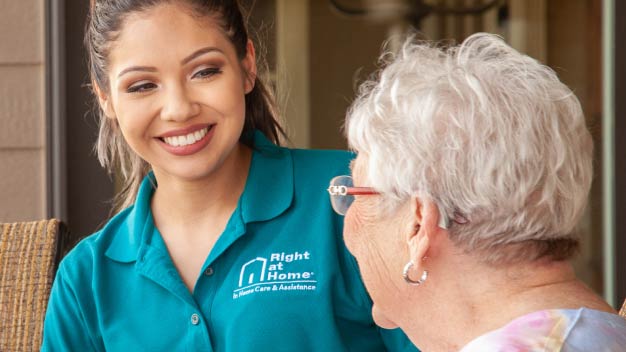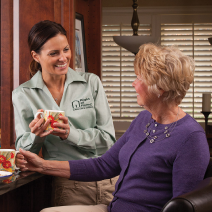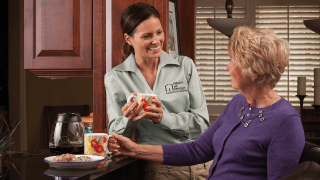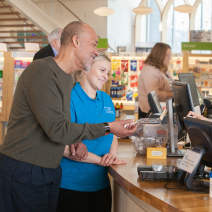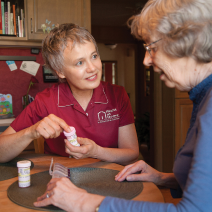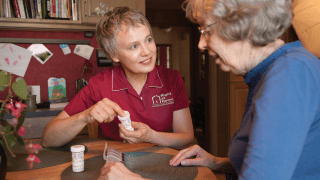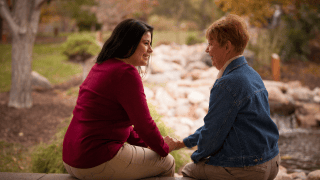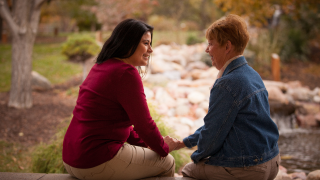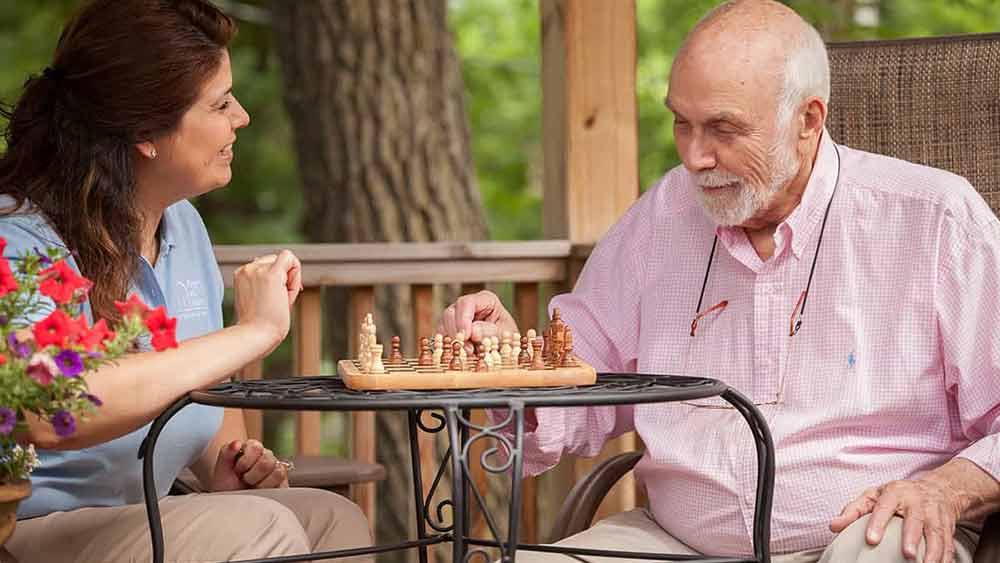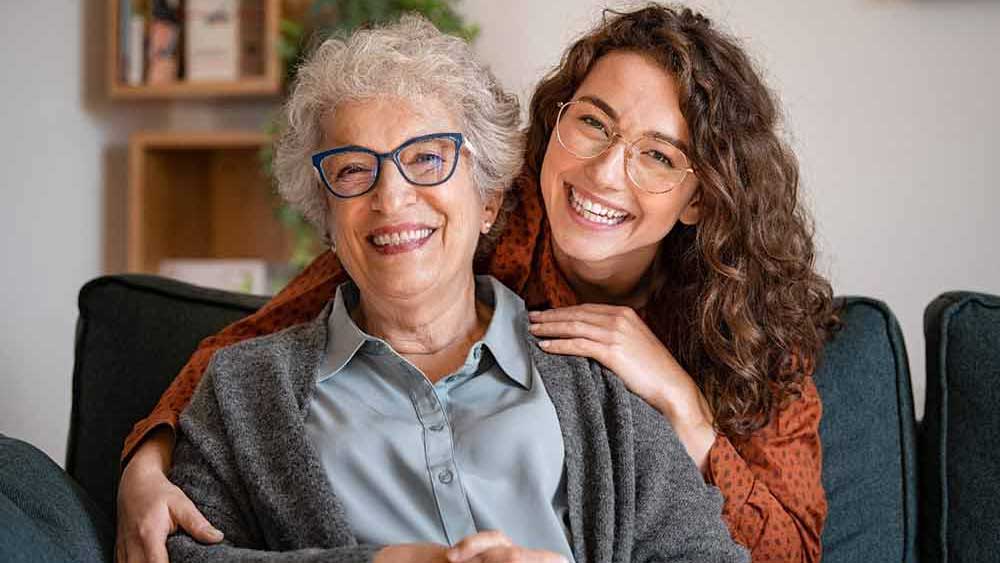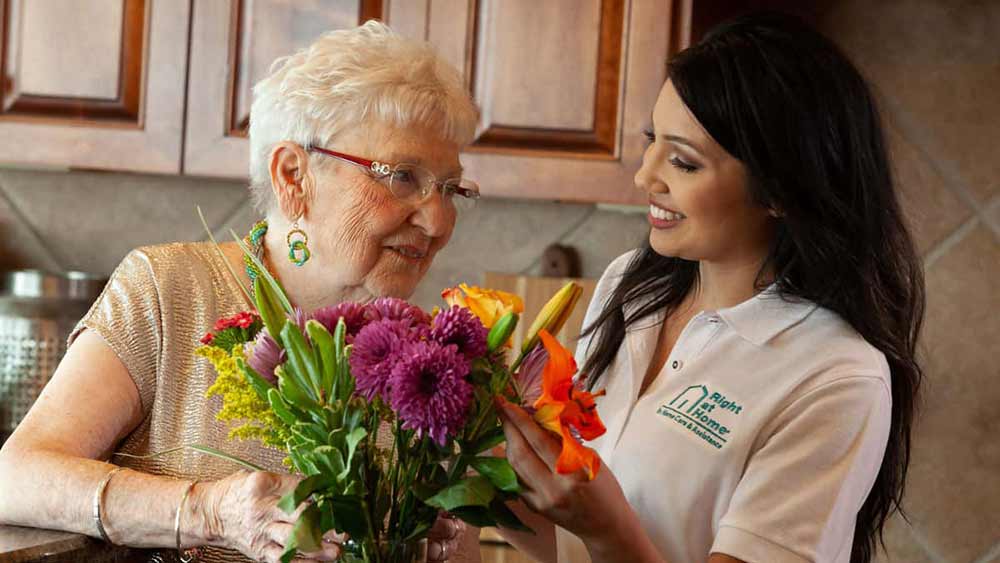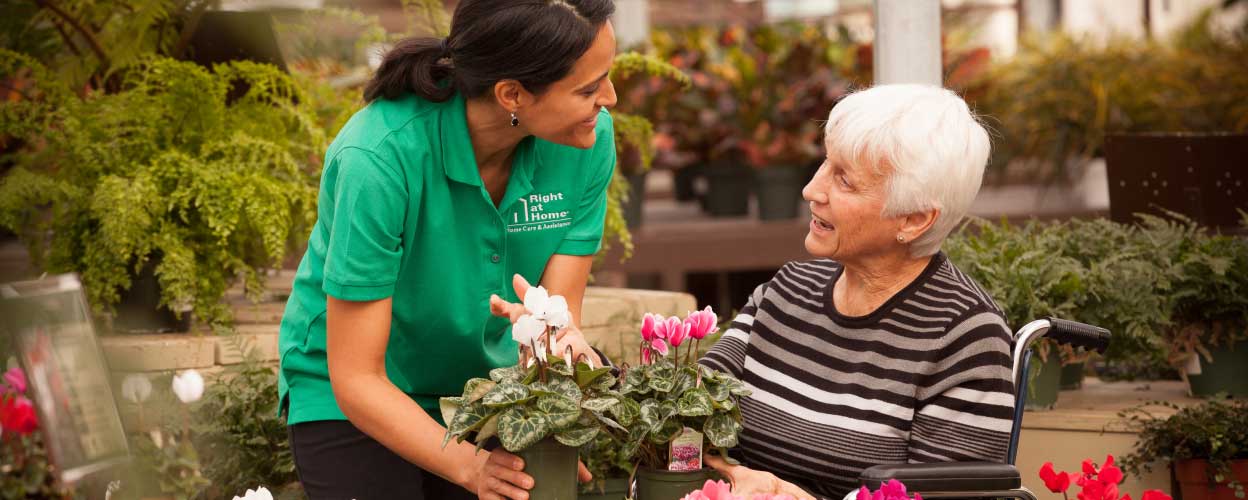
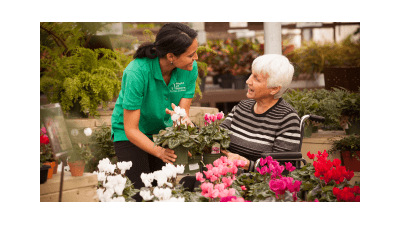
Alzheimer’s, Dementia and Cognitive Change
No matter the cause, conditions that result in a change of mood, memory or the thinking process are especially tough. When these are associated with aging, we often call them “Alzheimer’s,” but in reality, Alzheimer’s is just one of many different disorders of the brain.
Caring for a family member or friend with cognitive difficulties is demanding. If you’re doing it by yourself, it’s even tougher. At times, it can feel like you’re battling both the disease and the person. They need a sense of normalcy, but they don’t always act like they want it. Even when you’re doing everything right, it can feel like you’re doing everything wrong. It drains you emotionally and physically.
We believe that it doesn’t have to. Our approach is about helping you reclaim precious moments with your loved one, so instead of worrying about their bad days, you can celebrate their good days. Most of all, we want to be there for both of you so you don't have to do it alone.
Right at Home offers a customized care plan with a combination of personal care, companionship and homemaking, and just as importantly, we can provide respite care for you and your other loved ones.
Dealing with Dementia
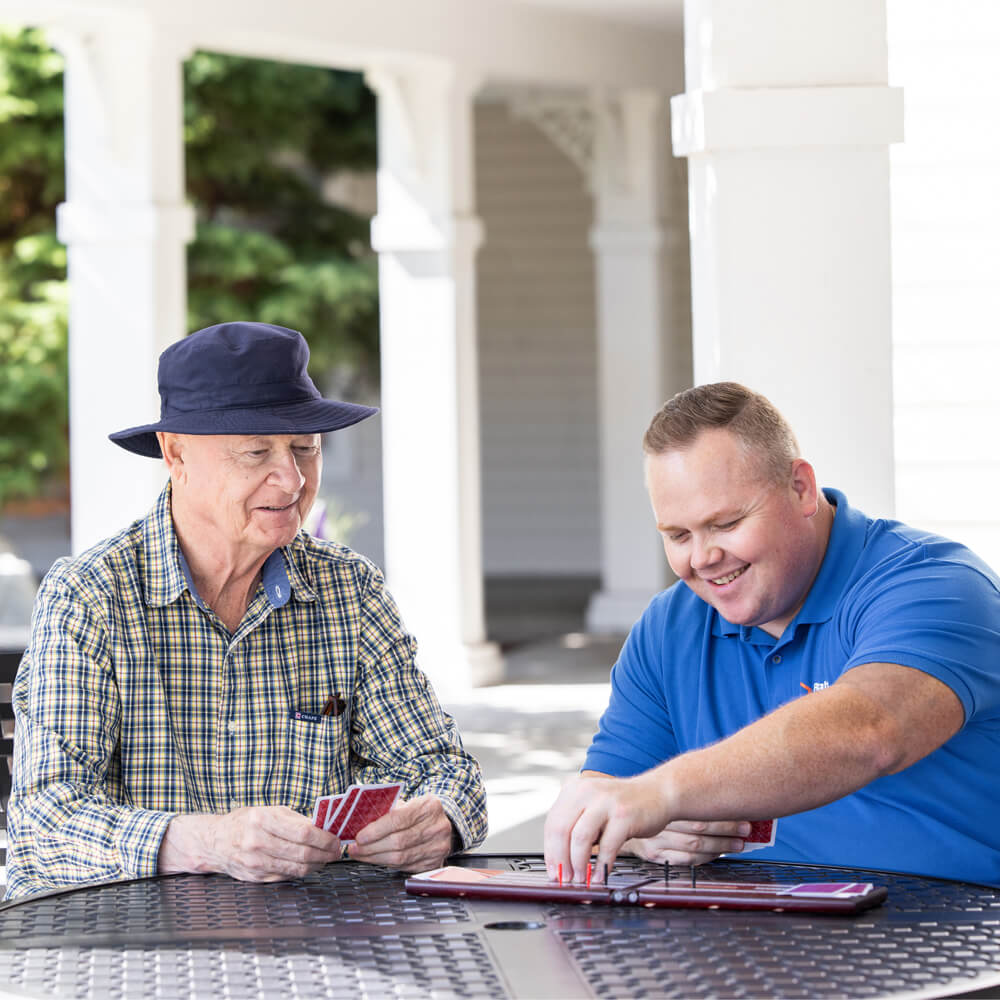
Our Personal Experience Sharon’s mother was first diagnosed with mild dementia nearly a decade ago. We both witnessed the confusion and anxiety that her mother would suffer from on a daily basis. To make matters worse, Sharon’s mother would insist that she was perfectly fine and would be angered whenever we ‘contradicted’ her. We had to learn ways of listening to her and reading her body language to discern what she was really meaning to say or do.
We started reading up on dementia and sought out resources that could help her and her family. One great resource for her brothers and us were the movies Nebraska and The Bath, both released in 2013. The movies were about families that had a family member with dementia. In a simple yet profound way, they hat taught us about our own need for acceptance rather trying to convince her mother that she was wrong.
We identified many other resources including research articles, advisory pamphlets, specialized training programs, and even an experiential learning experience that gives people a chance to see what a persona with dementia may feel and experience. When we started Right at Home Northwest we were committed to making those resources available to our staff and our client’s families and caregivers.
Positive Approach to Care
To better understand how she could help our staff and our client’s families in how to best deal with dementia, Sharon became trained and certified to deliver and train Teepa Snow’s, Positive Approach to Care. Teepa Snow, an occupational therapist with forty years of clinical practice experience, is one of the world's leading educators on dementia and the care that accompanies it. In 2005, she founded Positive Approach® to Care (PAC), a company that provides dementia care training, services, and products around the world.
Creating Social Opportunities through Alzheimer’s and Memory Cafes
To help support families with a loved one with memory issue, Steve and Sharon helped to start Alzheimer’s Cafes in Bellingham in conjunction with the Alzheimer’s Association of Washington and the Alzheimer’s Society. Steve and Sharon also launched an Alzheimer’s café in conjunction with Homeplace at Oak Harbor.
An Alzheimer's, dementia or memory café is a very “simple” idea: A monthly gathering of individuals with memory loss along with their caregivers, and/or friends and family in a safe, supportive, and engaging environment. The cafe gives everyone a welcome break from the disease.
Promoting Awareness through Experiential Learning
To help sensitize our broader community of care to the challenges face by persons with Alzheimer’s Disease, Right at Home Northwest has conducted dozens of free Virtual Dementia Tours® for more than 1,000 employees of assisted-living and memory-care communities across Whatcom, Skagit, Island, and Snohomish counties.
These tours are often open to family members of residents as well. At the end of the tour, Steve or Sharon will hold a debriefing for small groups of the participants. At one such debrief, an adult daughter that had just visited her mother that was suffering from Alzheimer’s Disease, wept after taking the tour exclaiming that she had been so mean to her mother without understanding the difficulties and anxiety that she must be experiencing. We reassured her that she did not understand the impact of the disease then, but that she understood it now. She smiled in thanks and returned to re-engage with her mother equipped with newfound insights and a renewed sense of compassion.
We are inspired by such experiences to offer this free service. Call us if you would like to set up a Virtual Dementia Tour® for your community or organization.
Supporting those that Support families Dealing with Dementia
We are committed to helping our colleagues in the community of care by supporting their fundraising efforts as well as providing support to their constituents with dementia and their family members. We are pleased to support the following non-profit organizations that are dedicated to providing support and respite to those families dealing with dementia:
Alzheimer’s Association
- Right at Home Northwest provides committee membership and support for organizing fundraising events such as Glow Runs and Walks to End Alzheimer’s.
Bradford House & Skagit Adult Day Program
- Right at Home Northwest support their fundraisers and Steve has given free stress management and wellness talks to family members.
Dementia Support Northwest (formerly the Alzheimer Society of Washington)
- Right at Home Northwest support their Annual Gala fundraiser and organized the first Alzheimer’s Café in Bellingham.
Northwest Adult Day Care & Wellness Center
Our owner, Dr. Steve Morris, has given free talks on stress management for family members that are dealing with loved-ones that have dementia.
Virtual Dementia Tours ®
The Virtual Dementia Tour® (VDT®) series was developed by Second Wind Dreams® to help people caring for those with dementia provide better care and better understand the needs of those suffering with the disease. Right at Home Northwest has been trained and licensed to provide Virtual Dementia Tours since 2013.
The Virtual Dementia Tour® is a dementia simulation that was created to teach people the physical and mental challenges of those living with dementia. It is a scientifically proven method designed to build sensitivity and awareness in individuals caring for those with dementia. Learning to create a positive environment for those with dementia can only come from attempting to walk in their shoes. The VDT® offers hope to caregivers, providing tips and tools necessary to create an environment that supports the needs of those with the disease.
Right at Home Northwest Washington conducts free Virtual Dementia Tours® throughout the year as a service to our community. Typically, we will train the entire staff of an assisted living community from security personnel, cooks, caregivers, to nurses and administrator.
Dr. Steve Morris, owner of Right at Home Northwest, “We are proud to conduct the Virtual Dementia Tour in Northwest Washington. We find that professional caregivers and family members alike always gain a deeper understanding of the sufferer. And, that’s so important. This knowledge allows them to have more empathy and patience and ultimately results in better care for the client.”
Right at Home Northwest has provided VDT® training to the following organizations in Northwest Washington:
- Birchview Memory Care
- Brookdale Stanwood
- Careage of Whidbey
- Cascade Valley Senior Living
- Chandlers’ Square
- Creekside Continuing Care Community
- Home Place at Oak Harbor
- Hospice of the Northwest
- Josephine Caring Community
- Louisa Place
- Lighthouse Memory Care
- Springcreek Retirement and Assisted Living Community
- The Bellingham at Orchard
- Warm Beach
- Where the Heart Is
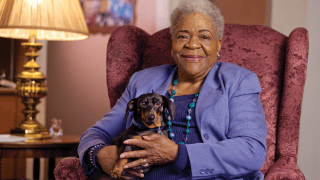
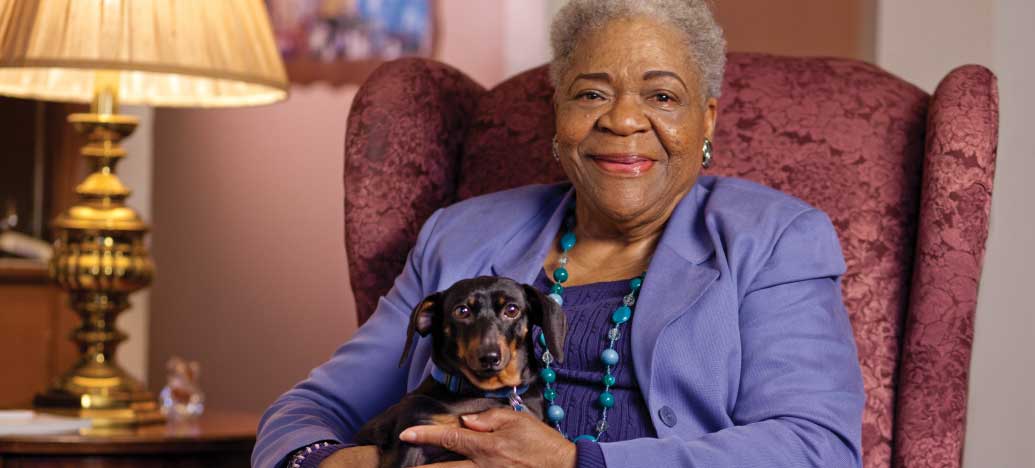
Right at Home’s Dementia and Cognitive Support Program
What if every person with dementia, no matter how advanced their disease, still had the ability to be present and aware of their surroundings? That’s the question that inspired our approach. To us, it’s not unrealistic. In fact, we’ve made it a fundamental goal of our care program. Our method is customized to the unique needs of the person with dementia, and delivered by certified providers. It consists of reinforcing the three key grounding principles:
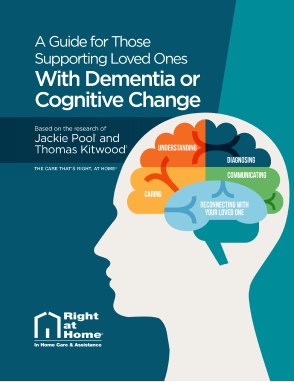
Feeling Lost?
Let Us Help You Care for Those With Dementia
Right at Home’s Dementia Guide Video Series
Four Ways We Can Help
The Latest Thinking in Cognitive and Dementia Care
